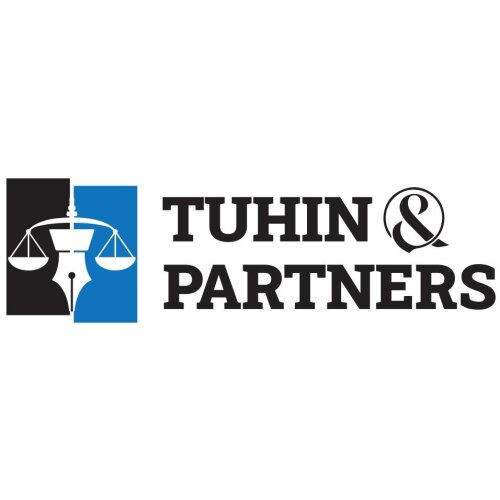Best Inheritance Law Lawyers in Dhaka
Share your needs with us, get contacted by law firms.
Free. Takes 2 min.
List of the best lawyers in Dhaka, Bangladesh
About Inheritance Law in Dhaka, Bangladesh
Inheritance law in Dhaka, Bangladesh blends religious personal law with general civil property rules. For many families, the starting point is the religion of the person who died and the property type involved. In Dhaka courts, Muslims typically follow Sharia-based rules under the Muslim Personal Law (Shariat) Application Act, 1937. Non Muslims may rely on the Hindu Succession Act, 1956 or the Succession Act, 1925 for certain matters.
Understanding which law applies is crucial for shares, succession certificates, and the validity of wills. Dhaka residents often navigate both personal law and civil procedures to resolve disputes. An experienced advocate can map out applicable rules, identify heirs, and explain expected timelines in Dhaka’s courts.
“The Muslim Personal Law (Shariat) Application Act, 1937 provides the framework for applying Sharia in personal matters including inheritance.”
Source: Muslim Personal Law (Shariat) Application Act, 1937 - bdlaws.minlaw.gov.bd
Why You May Need a Lawyer
In Dhaka, specific inheritance situations commonly require professional legal guidance. Below are concrete, real-world scenarios you might face.
- You are a widow or child in a Muslim family with disputed shares after a parent's death. You need to establish rightful shares and partition the property under Shariat law.
- You plan to draft a will or handle probate for assets located in Dhaka. An advocate can ensure the will satisfies formal requirements and is enforceable in court.
- You suspect a will is forged or misrepresented, or you want to challenge a will that disinherits a rightful heir. Legal counsel helps evaluate validity and gather evidence.
- You belong to a Hindu family in Dhaka and seek to understand rights under the Hindu Succession Act, 1956, including daughters’ share and coparcenary rules.
- You face a cross-religion inheritance issue, such as a mixed-family property dispute, where multiple laws may apply. A lawyer can coordinate claims under different statutes.
- You need a succession certificate or probate order to transfer title deeds to heirs. An advocate guides the filing process and court requirements.
Local Laws Overview
The inheritance framework in Dhaka rests on a few key statutes and related provisions. Below are the primary laws and how they influence typical cases in Dhaka.
- Muslim Personal Law (Shariat) Application Act, 1937 - governs inheritance and related personal matters for Muslims in civil proceedings in Bangladesh. Official text is available at the national legal portal.
- Hindu Succession Act, 1956 - governs inheritance among Hindus in Bangladesh, including rights of daughters and other heirs in many cases. Official text is available at the national legal portal.
- The Succession Act, 1925 - provides rules for testamentary and intestate succession for communities not fully governed by personal law, and is often referenced for non-Muslim cases and will related matters. Official text is available at the national legal portal.
- Family Courts Act, 1983 - establishes Family Courts in Dhaka to handle family matters including inheritance disputes, wills, and related petitions. Official text is available at the national legal portal.
For authoritative texts, consult the official Bangladesh law portal at bdlaws.minlaw.gov.bd. These acts provide the foundation you need to discuss your case with an advocate in Dhaka.
“The main framework for inheritance in Dhaka depends on religious personal law and general succession rules.”
Source: bdlaws.minlaw.gov.bd - Official law portal
Frequently Asked Questions
What is the Muslim Personal Law Shariat Act 1937?
The Act governs how Sharia rules apply to personal matters, including inheritance, for Muslims in civil proceedings in Bangladesh.
How do I start an inheritance case in Dhaka?
Begin by gathering death and property documents, then consult an advocate to determine the correct forum and filing requirements in Dhaka.
What is the difference between a will and inheritance under Dhaka law?
A will is a testament directing asset distribution after death, while inheritance refers to the legal transfer of property under applicable laws when there is no valid will or for intestate cases.
How much will it cost to file for probate in Dhaka?
Costs vary by case complexity and court fees. Expect filing fees, lawyer charges, and potential court stamping costs; consult a Dhaka advocate for a precise estimate.
Do I need to be a resident of Dhaka to file inheritance matters there?
No, you can initiate certain inheritance petitions in Dhaka if the property or heirs are located in Dhaka. Local venue may depend on the property site and heirs.
Can a will be contested in Dhaka courts?
Yes, beneficiaries can challenge a will on grounds such as forgery, lack of capacity, or improper execution, subject to statutory time limits.
Should non-Muslims rely on Hindu Succession Act in Dhaka?
Where applicable, Hindus in Dhaka follow the Hindu Succession Act for inheritance matters, including daughters’ rights to share and coparcenary rights.
Do I need to hire a lawyer for wills and succession matters?
While not mandatory, a lawyer improves accuracy, helps meet court deadlines, and reduces the risk of delays or disputes in Dhaka.
Is there a separate court for inheritance in Dhaka?
Inheritance matters are typically handled in Civil Courts and, in some cases, Family Courts in Dhaka, depending on the nature of the dispute and the parties involved.
How do I obtain a succession certificate in Dhaka?
Apply to the appropriate civil or family court with required documents to prove heirs and rights to the estate; a lawyer can manage the petition and hearings.
What documents are usually required to start an inheritance case?
Common documents include death certificate, title deeds, property tax receipts, family tree, birth certificates of heirs, and any existing wills or partition deeds.
Additional Resources
These official resources can help you understand the inheritance framework and locate qualified legal assistance in Dhaka.
- Supreme Court of Bangladesh - Official portal for court procedures, judgments, and contact information for Dhaka courts. https://www.supremecourt.gov.bd/
- Bangladesh Law Commission - Government body that reviews and recommends legal reforms, including inheritance related issues. https://www.lawcommission.gov.bd/
- bdlaws Official Portal - Central repository for Bangladesh statutes and acts, including the Muslim Personal Law, Hindu Succession Act, and Succession Act. https://bdlaws.minlaw.gov.bd/
Next Steps
- Define your objective and identify the heirs involved in Dhaka, noting each person’s relation to the deceased. Aim to finalize a list within 1 week.
- Gather essential documents such as death certificate, title deeds, tax receipts, and any existing wills. Complete collection within 2 weeks.
- Search for an advocate in Dhaka who specializes in inheritance and personal law. Shortlist 3-5 with referrals from trusted sources within 1 week.
- Schedule initial consultations to discuss applicable law, expected timeline, and fee structure. Allocate 1-2 weeks for scheduling and meetings.
- Decide on a strategy for probate or succession filings, including whether to pursue amicable partition or court action. Develop a plan within 1 week of the first meeting.
- Prepare and file the necessary petitions in the correct Dhaka court and respond to any court requests promptly. Allow 1-3 months for initial filings, depending on complexity.
- Monitor progress, communicate with your advocate, and pursue settlements when possible to reduce delays. Expect a timeline of several months to a year for resolution in complex cases.
Lawzana helps you find the best lawyers and law firms in Dhaka through a curated and pre-screened list of qualified legal professionals. Our platform offers rankings and detailed profiles of attorneys and law firms, allowing you to compare based on practice areas, including Inheritance Law, experience, and client feedback.
Each profile includes a description of the firm's areas of practice, client reviews, team members and partners, year of establishment, spoken languages, office locations, contact information, social media presence, and any published articles or resources. Most firms on our platform speak English and are experienced in both local and international legal matters.
Get a quote from top-rated law firms in Dhaka, Bangladesh — quickly, securely, and without unnecessary hassle.
Disclaimer:
The information provided on this page is for general informational purposes only and does not constitute legal advice. While we strive to ensure the accuracy and relevance of the content, legal information may change over time, and interpretations of the law can vary. You should always consult with a qualified legal professional for advice specific to your situation.
We disclaim all liability for actions taken or not taken based on the content of this page. If you believe any information is incorrect or outdated, please contact us, and we will review and update it where appropriate.










